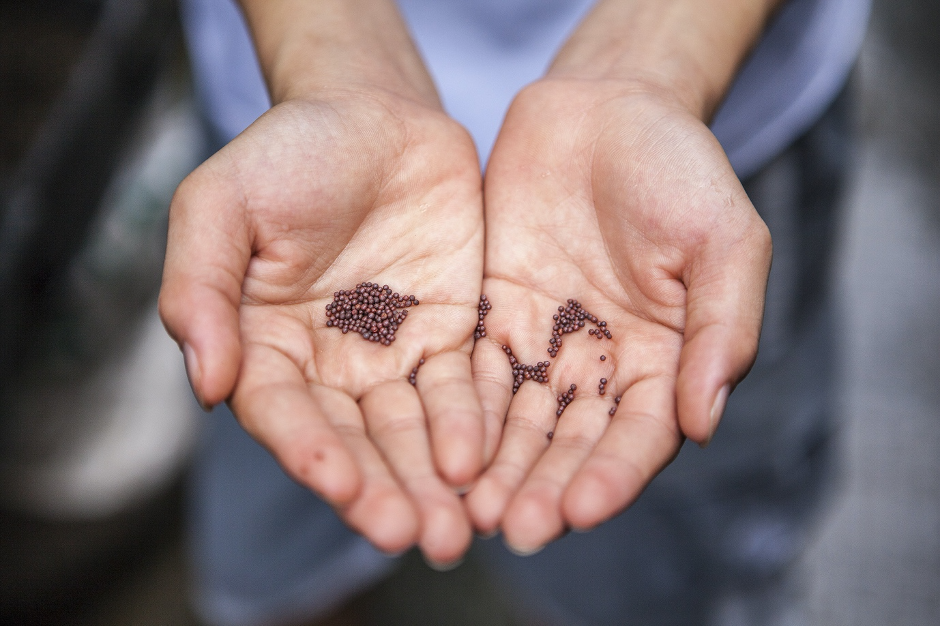
Some truths have really stood the test of time. Any testimonies out there for getting what you paid for? Let’s not forget when we bought cheap… and had to buy twice! An adage I’d like to add is ‘Don’t let Hosea pick names for your children’. One truth I’m sure we can all agree on is this: we reap what we sow (Galatians 6:7).
In the book of Hosea, chapter six ends with the lament “O Judah, a harvest of punishment is waiting for you, though I wanted to restore the fortunes of my people.’ In this chapter alone, the LORD repeatedly and passionately calls on His people to return to Him, to show love and a desire for relationship rather than the ritual of sacrifices and burnt offerings.
All this got me thinking about seeds. I was very disappointed to learn that some half-remembered idea about seeds from a pharaoh’s pyramid sprouting thousands of years after they were left there are unfounded. Aside from anything else, the Egyptians who put the seeds there in the first place all those millennia ago baked them first to ensure that germination didn’t happen.
I did discover this piece of trivia, though. In 1973, archaeologists digging around the fortress of Masada – the last stand of Jewish zealots and destroyed with typical Roman ruthlessness and efficiency in A. D. 73 – found seeds from the Judean date palm. Neglect, war and general disinterest meant that this particular date palm had not only stopped being cultivated in the area, but was eventually extinct by around A.D. 500. I am always puzzled as to how people date these things so precisely.
These 1900-year-old seeds were promptly ignored. I guess when you are digging around such an historic site, seeds aren’t the ‘find of a lifetime’ moment! Left at room temperature and ignored for decades, the seeds were eventually examined again in 2005 and someone had the bright idea to see if they were still viable. The process was by all accounts not an easy one. After much science, care and certainly some judicious watering, researchers were rewarded with the first Judean date palm and the claim to fame of having brought it back from extinction.
Nature is amazing. Not a surprise given how much more amazing God is, but still incredible to think that a seed that lay for over 1,900 years could still (with care and the right environment) actually produce fruit. In Matthew chapter nine, Jesus talks about the need for more workers for the ‘great harvest’; in chapter thirteen, He tells the parable of the farmer scattering seed. We understand that as disciples, we are involved in God’s work. We sow God’s desire for salvation and relationship with His creation with that same desire and concern that we read in Hosea chapter 6. We don’t always see immediate results, but if we keep going there will be a growing (Galatians 6:9).
But as I was reading through Matthew 13, something else stood out to me.
Jesus returns to Nazareth, and the people who wonder “Where does he get his wisdom and the power to do miracles?” quickly dismiss all they have seen with “He is just a carpenter’s son…”. Matthew records they were ‘deeply offended’ and ‘refused to believe’. In this place, Matthew records that Jesus “…only did a few miracles there because of their unbelief.” They chose to sow contempt, and they reaped the fruits of it. Here’s another adage for you - familiarity breeds contempt. Now contempt is an uncomfortably emotive word. It can be defined as a wilful disobedience to or disrespect for authority.
This got me thinking. Are there times when in my calling to be a worker for the harvest gets derailed and I sow discord instead of harmony out of some selfish ambition or insecurity? Do I sow division with a casual comment that dishonours one of my church family? In essence, have I fallen into the trap of sowing my flesh and not God’s spirit (Galatians 6:8)? Am I taking every opportunity to sow generously into the lives of others (2 Corinthians 9:6 )? Am I sowing what I want to harvest in every area of my life?
And here is what is so much more amazing than a seed dormant for nearly two millennia springing to life - God has chosen us for fruitfulness. In John 15:16, Jesus says “You didn’t choose me. I chose you. I appointed you to go and produce lasting fruit…”. So, let’s get sowing the right seeds. Let’s pray to the Lord of the harvest for the wisdom, passion and endurance to speak good news and to be good news. After all, Jesus goes on to say this “…so that the Father will give you whatever you ask for, using my name.”
If a long buried and ignored Judean date palm seed can bring back a species, we can sow - and know - that God can restore relationships, bind up the broken hearted, and release those held in captivity by sin through our words, actions and attitudes. Let’s keep sowing.
